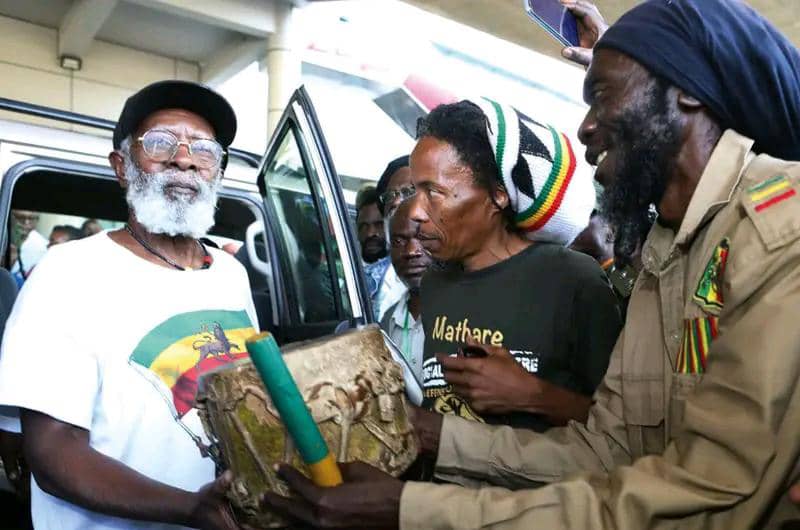University of Malawi (UNIMA) through School of Arts, Communication and Design is set to host its second UNIMA Theatre Festival from 22nd to 24th November at the universitys Great Hall in Zomba where professional, university based drama groups and those from secondary schools will perform.
Director of the festival, Dr. Zindaba Chisiza told Malawi News Agency (Mana) that this will be the second year the UNIMA run a festival since 2023 when the first one in 2023 was held from 24th up to November 26th.
He said the festival will bring together performances from 30 theatre groups, including Solomonic Peacocks, Upile Drama Group, Nanyoni Drama Group, Young Travellers, Emancipation Theatrical Ensemble, Khadzu Khadzu Drama Group, Creative Nexus from LUANAR, Chanco Travelling Theatre, UNIMAs Brother to Brother (B2B), Tauka Arts Theatre, Liberant Arts Theatre Company and other drama groups from secondary schools.
“But what is even more exciting is that, we have well known musical artists such as Kell Kay, Saint, Praise Umali, Temwah and Trappy Beats that will share the stage with the theatre groups,” Chisiza.
He said people that will buy tickets at K2,500 regular ticket per day and K5,000 VIP ticket per day will stand chance to enter into a raffle draw to win accommodation for two at Kefi Hotel Café, a modern hotel and lodging facility in Zomba.
Chisiza who is also the Associate Professor of Drama in the School of Arts, Communication and Design said UNIMA Theatre Festival came to create a platform where professionals that are working in the industry, amateur groups, university based groups and secondary schools should share knowledge and skills around theatre.
“It also creates a platform for networking, allowing people to meet, particularly our students who are at the university studying theatre, film, creative arts. This should create opportunity to see and to learn from other people.
“Sometimes if one is just doing things on his own, one thinks he is very best but when one sees other people perform, one tends to have a different perspective,” he added.
Associate Professor Chisiza further said the theatre festival will give students opportunity and platform to showcase and participate as actors and actresses, directors, stage managers, technical team, volunteers as well as part of the festivals organising committee.
“We also felt there was a need to organise the theatre festival after observing that theatre audience and theatre landscape has been shrinking for many years due to lack of space and support. The University of Malawi is in unique position because we have one of the best theatre spaces in the country, the Great Hall, which was built to carter for different performances.
“The University of Malawi has over 10,000 students, if these students appreciate theatre and can love theatre they will be able to support the theatre landscape or theatre industry in Malawi when they leave the university,” he added.
He expressed hope that theatre festivals could turn into a better tool to prepare students to become best theatre personalities after leaving the university.
“Last year we started out with only one sponsor, but this year we are very fortunate to have received grants from various partners that have supported us and we have managed to get some grants from Standard Bank, Tilitonse Foundation, Zipatso Construction Company, Old Mutual, Inq Digital Media and Malawi Research and Education Network (MAREN) and we are very excited because this is a confirmation of the value of the festival when the partners are coming in to support,” said the Associate Professor.
He therefore called on theatre lovers in all districts of Malawi to come to Zomba to patronise the festival, saying the UNIMA Theatre Festival is open to all.
He disclosed that on Saturday morning there will be workshops on theatre, script writing, acting and digital marketing.
Founder and Director at Dikamawoko Arts, Tawonga Taddja Nkhonjera told Mana in a separate interview that it was not so simplistic to say stage theatre has evolved as evolution is a long, protracted process that takes into account numerous factors.
Nkhonjera said that in the 80s and 90s, one group stood head and shoulders above the rest-Wakhumbata Ensemble Theatre while main playwright, Du Chisiza Jr. would write plays of different genres, the predominant themes were socio-political discourse.
“This set a precedent amongst new theatre ensembles. In the early 2000s, Nanzikambe Arts was formed by Kate Stafford, and there was a new wave of stage theatre.
“A spate of adapted productions came, such as African Macbeth, the Frogs and Makwacha Hip-Opera. We started using masks on stage, inspired by Greek theatre. Nanzikambe was a well-funded organisation and could afford stage productions with big casts of more than 10 performers,” he added.
Nkhonjera said that in more recent times, new ensembles sprouted in, the likes of New Beginning Theatre, Umunthu Theatre, Youth Developers Collaboration (YDC) Theatre and Young Travelers working in the theatre industry against several odds.
The director further said successful theatre industry in Malawi could create employment and entrepreneurship citing that lecturers at UNIMA were employed to teach acting, playwriting and directing and they have gainful employment from theatre.
Nkhonjera observed theatre is source of employment in relation to Malawi Vision 2063; saying unemployment among the youths can be reduced if government invests in building theatre facilities in every district in Malawi, thereby promoting tourism and entrainment industry in the country.
“A simple example would be the number of people that go to the Edinburgh Theatre Festival in Scotland. Locally, we have the Easter Theatre Festival run by Solomonic Peacocks headed by MacArthur Matukuta. So far we have seen people come from Germany, Zambia, DR Congo, Uganda, Italy, England, Australia and other countries, so if we had bigger and higher profile international theatre festivals, we would attract performers and audiences from all over the world,” said the director.
He further observed that theatre promotes cultural preservation and history of a country, saying the intellectual aspect of theatre was that scripts can tackle historical subjects of a country, or traditional practices, rites and customs, dances and songs of a country.
“Theatre productions ensure the preservation and proliferation of such knowledge in performance,” he added.
Nkhonjera noticed that turning theatre industry into a profitable business was still a challenge in Malawi but expressed hope that with government support things can improve for the better as is the case in South Africa and other countries where they value theatre as a commodity.




